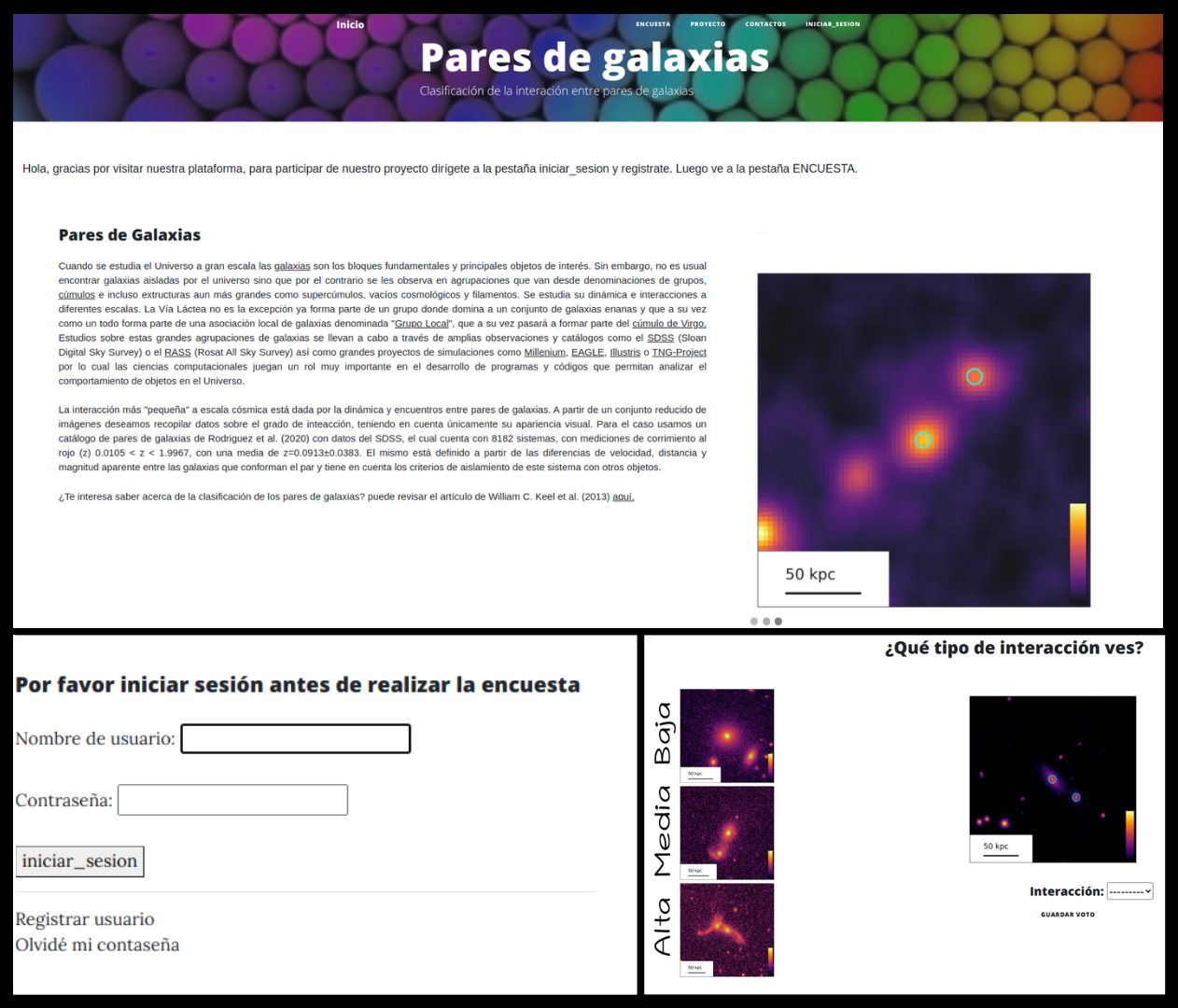A team from Instituto de Astronomía Teórica y Experimental (IATE), led by Vanessa Daza, Germán Alfaro and José Benavides, developed an interactive platform in which experts and non-experts can collaborate in the processing of astronomical data.
By Facundo Rodriguez
facundo.rodriguez@unc.edu.ar
Cooperation between research teams and the public has a long history in different scientific disciplines. In astronomy, due to the great interest of the public, the presence of amateur associations and the constant need for processing large volumes of data, there are several examples of citizen science that cross the boundaries of observatories and research centres and involve non-professionals in the analysis and/or collection of data. These experiences range from asteroid hunting and star counting to galaxy classification.
Given the above and the astronomical production in Argentina, it is not unusual that we can present local examples. One of them is PISCIS (Platform for Interactive Search and CItizen Science). This platform facilitates the link between astronomy professionals who produce classifiable data and other people, who are interested in participating in such classification.
"PISCIS is a citizen science project that aims to collect scientific information using the knowledge and information of citizens," explains Vanessa Daza. And Germán Alfaro adds that "the Internet allows the participation of people who are not related to research projects, which makes it possible to collect a much larger amount of data". José Benavides, on his side, completes the idea by saying that "to be able to carry out the classifications, training is necessary. So whoever participates also learns how to work in astronomy".
The team
Vanessa, Germán and José are currently pursuing their PhD in Astronomy at the School of Mathematics, Astronomy, Physics and Computer Science (FaMAF) of the UNC, with scholarships from CONICET. In addition, in the research projects they carry out at IATE, they analyse large amounts of data and therefore have experience in programming. As part of their training and the final work of a postgraduate course, they decided to produce this platform.

"In addition to allowing the public to participate in research that may have a certain impact and possibly end up being published, this platform is important because it shows that the training during the PhD course in Astronomy provides students with the opportunity to be trained in Numerical Astrophysics, in simulations and various computational tools and, therefore, to have a fluent conversation with professionals and specialists in Computer Science", says Marcelo Lares, a researcher at IATE, professor at the Astronomical Observatory of Córdoba (OAC) and one collaborator with the initial idea that ended up materialising in this project.
For this project to see the daylight, in addition to the support of Marcelo Lares, the team had the help of the IATE community, for example, Victoria Santucho (Postdoctoral Fellow of the Secretariat of Science and Technology of the UNC), Juan B. Cabral (CONICET postdoctoral fellow and who taught the postgraduate course that promoted this project), the institute's support staff, in particular from the systems area, Ana O'Mill and Facundo Rodriguez (who provided the first dataset to be classified), among many others.
How can we collaborate today?
The platform is now available. It is also being used to classify the first set of data. These consist of galaxy pairs, i.e. systems formed by two galaxies that, in some cases, can be very close to each other and interact. The aim is to catalogue them according to the type of interaction and, for this purpose, examples of pairs with high, medium or low interaction are given. Public input will be important, both to evaluate the platform and to visually inspect hundreds of pairs of galaxies. The product of this classification can then be used in various analyses and publications.

In short, this project is an example of how the synergy between citizens interested in astronomy and professionals specialised in different related disciplines can generate science and, at the same time, diverse learning and enriching experiences for all those involved.
Webpage |
| paresdegalaxias.iate.conicet.unc.edu.ar Team | I. V. Daza, I. G. Alfaro, J. A. Benavides, M. Lares, M. V. Santucho & J. B. Cabral. |
